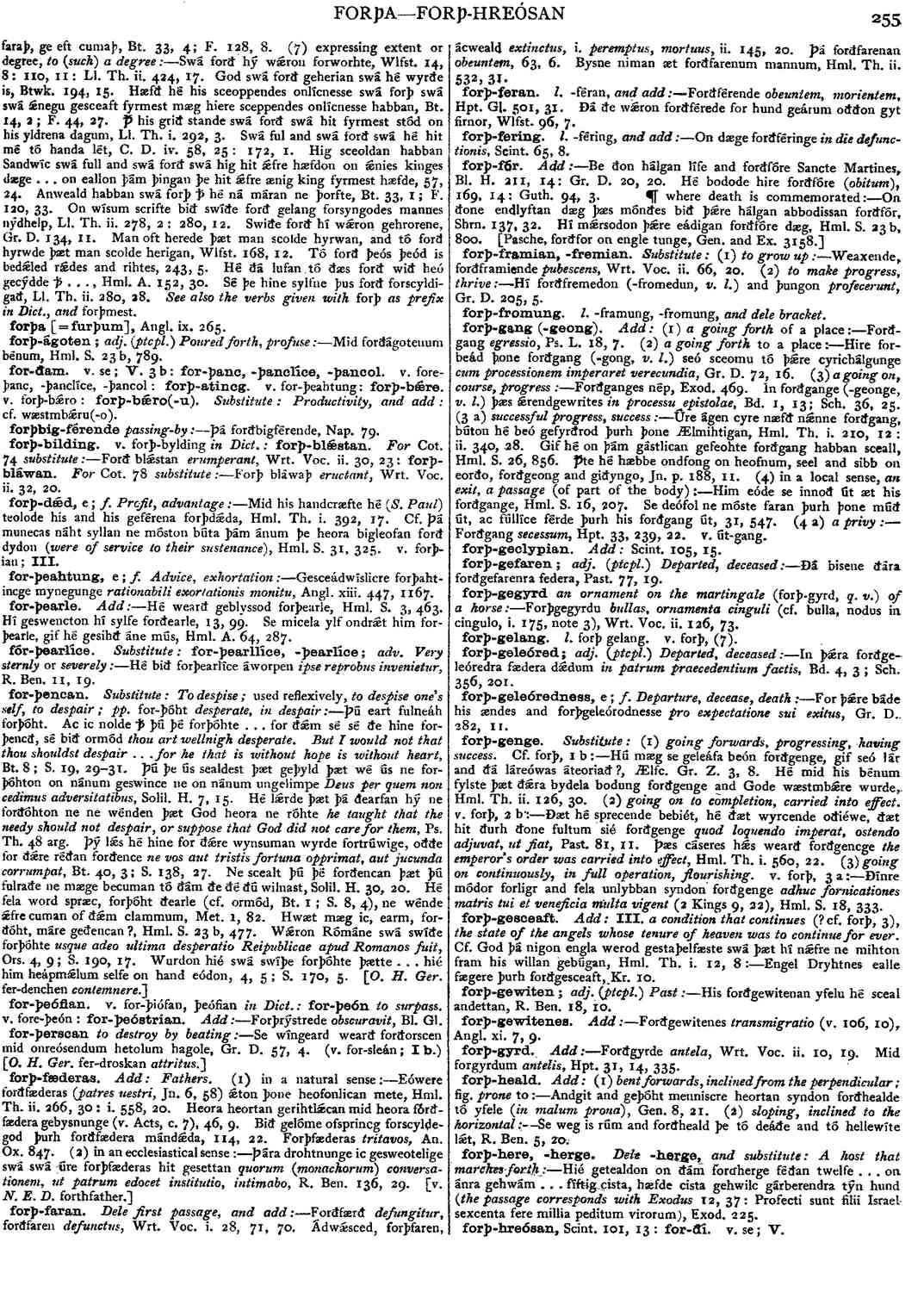for-þencan
-
Þú eart fulneáh forþóht. Ac ic nolde ꝥ þú þé forþóhte ... for ðǽm sé sé ðe hine forþencð, sé bið ormód
thou art wellnigh desperate. But I would not that thou shouldst despair ... for he that is without hope is without heart,
- Bt. 8; S. 19, 29-31.
-
Þú þe ús sealdest þæt geþyld þæt wé ús ne forþóhton on nánum geswince ne on nánum ungelimpe
Deus per quem non cedimus adversitatibus,
- Solil. H. 7, 15.
-
Hé lǽrde þæt þá ðearfan hý ne forðóhton ne ne wénden þæt God heora ne róhte he taught that the needy should not despair, or suppose that God did not care for them. Ps. Th. 48 arg. Þý lǽs hé hine for ðǽre wynsuman wyrde fortrúwige, oððe for ðǽre réðan forðence
ne vos aut tristis fortuna opprimat, aut jucunda corrumpat,
- Bt. 40, 3; S. 138, 27.
-
Ne scealt þú þé forðencan þæt þú fulraðe ne mæge becuman tó ðam ðe ðe ðú wilnast,
- Solil. H. 30, 20.
-
Hé fela word spraec, forþóht ðearle (cf. ormód,
- Bt. 1; S. 8, 4), ne
-
Hwæt mæg ic, earm, forðóht, máre geðencan?,
- Hml. S. 23 b, 477.
-
Wǽron Rómáne swá swíðe forþóhte
usque adeo ultima desperatio Reipublicae apud Romanos fuit,
- Ors. 4, 9; S. 190, 17.
-
Wurdon hié swá swíþe forþóhte þætte ... hié him heápmǽlum selfe on hand eódon,
- 4, 5; S. 170, 5.
Bosworth, Joseph. “for-þencan.” In An Anglo-Saxon Dictionary Online, edited by Thomas Northcote Toller, Christ Sean, and Ondřej Tichy. Prague: Faculty of Arts, Charles University, 2014. https://bosworthtoller.com/46030.
Checked: 0